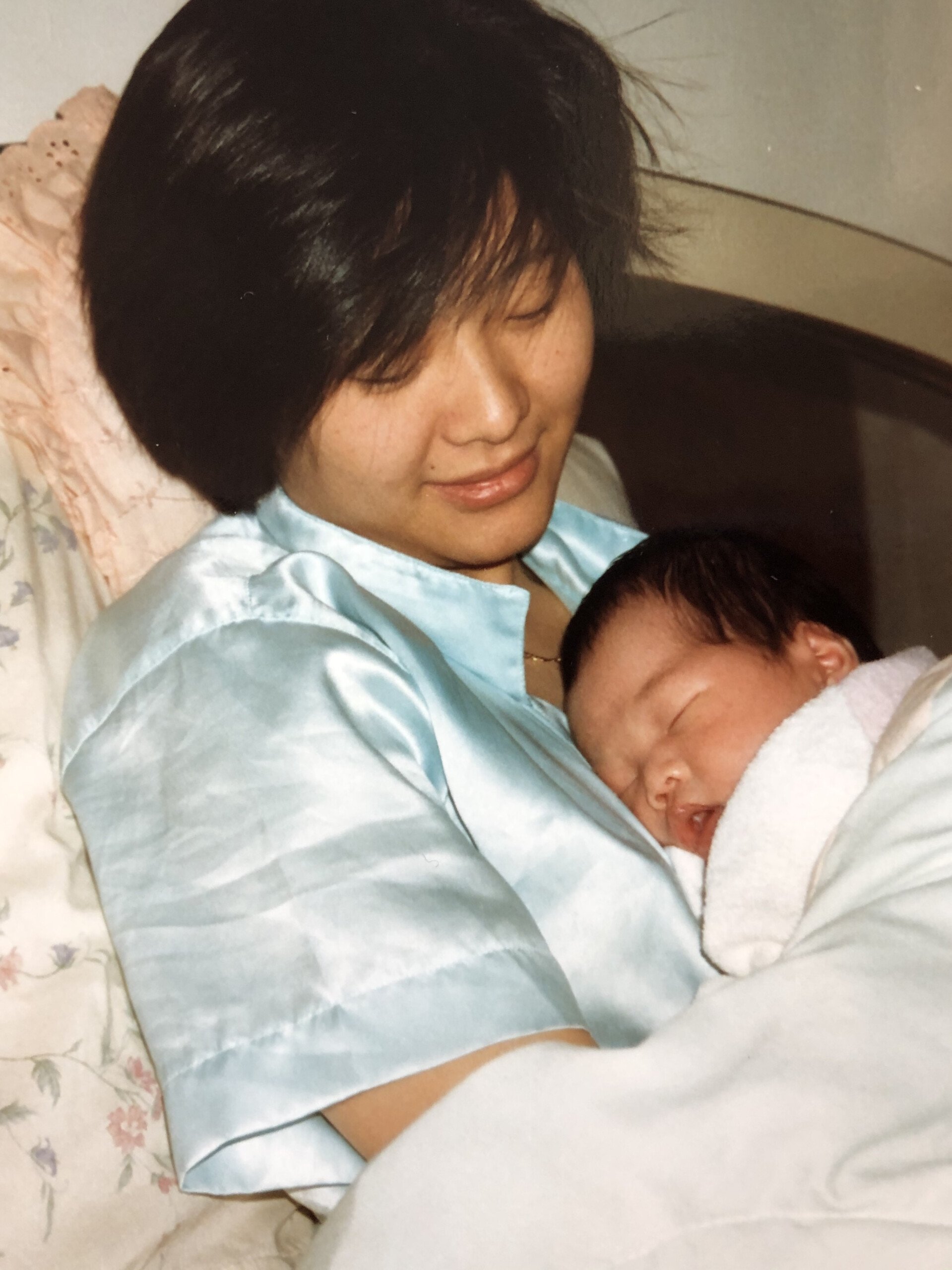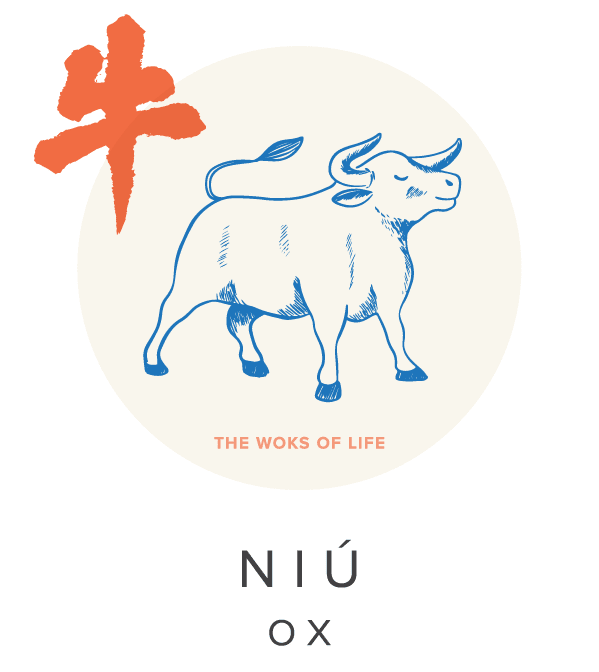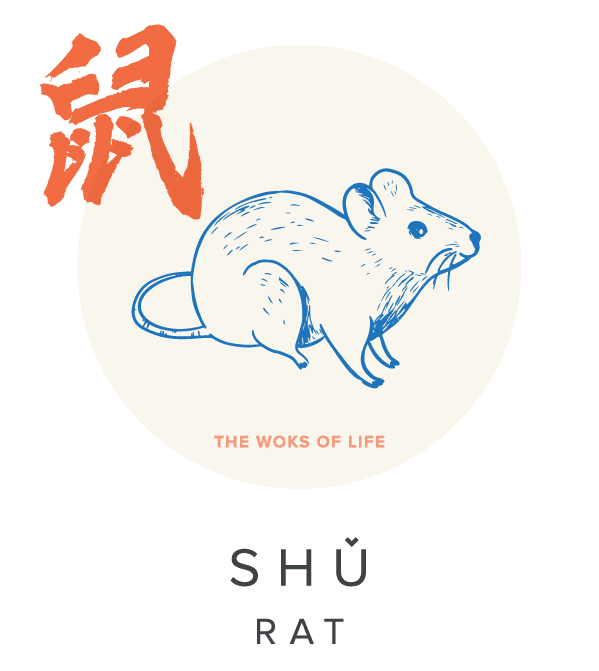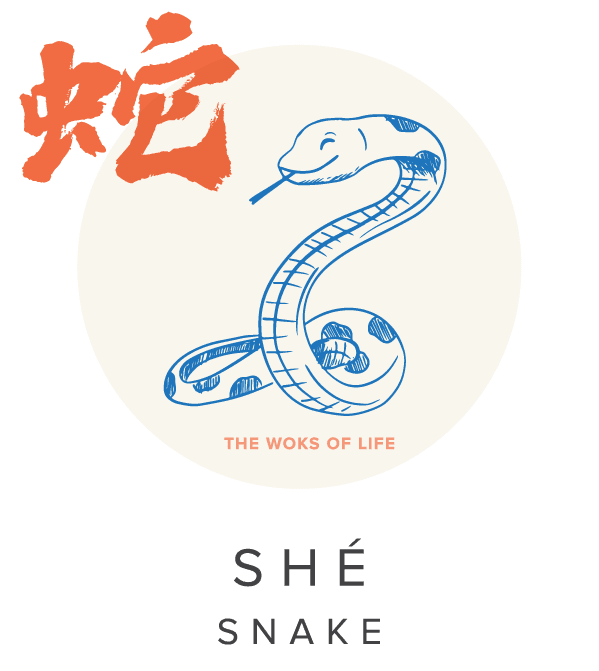A 30-day confinement after childbirth is a Chinese tradition that stretches back over two millennia (for C-section birth, it extends to 6 weeks). Known as zuò yuè zi (坐月子) in Mandarin, it’s a time when you’re meant to safeguard your and your baby’s health, while your body is in a fragile state after birth.
Over the years, we’ve gotten many questions from readers about this tradition, so today we’ll share what we know about it. We’ll explain some of the practices so you can learn about this Chinese tradition—whether you are expecting or not!
Important Disclaimer: The content of this article is intended for informational and educational purposes only and should not be misconstrued as medical advice. We are not physicians. There are many customs and traditions surrounding childbirth and new parenthood, and this post simply describes Chinese cultural practices and traditions. Always consult your doctor to understand what is safe for you. Also, we will use both terms, “mother” and “parent” to be inclusive of any birthing parent.
BEST RECIPES FOR NEW MOMS
Looking for recipes? Read more about Chinese confinement foods/postpartum diet guidelines here! If you’re Chinese or know someone Chinese you may have heard of various truisms and old wives’ tales about what you should and shouldn’t eat. We break it all down in our guide to the Chinese Post-Partum Diet!
An Ancient Tradition for New Mothers
There has been surprisingly little question regarding customary post-childbirth confinement in China. Many new mothers in China follow at least some of these practices, with guidance passed down through the generations. Similar confinement traditions exist in Malaysia and India. After having Sarah and Kaitlin, I did my best to follow the guidelines that my mother and Bill’s mother shared with me.
But overseas—especially with today’s younger generation—we tend to look at Western parents and question the necessity of these practices. Many do not follow the strict Chinese traditions around childbirth and aftercare, and they’re doing just fine, right?
To that, Chinese elders would probably tell you that our constitution is different from Westerners or perhaps that traditional Chinese medicine practitioners are more cognizant of problems that Westerners might not pay much attention to.
I haven’t done enough research to say whether or not that is actually the case, but I know that new mothers everywhere may suffer from chronic health problems like hair loss, aches and pains, or headaches after childbirth.
That said, I want to emphasize that this isn’t a scientific examination. Instead, it is a record of some of the more well-known, generations-passed-down knowledge that I’ve gathered over the years. Some might call them “old wives’ tales,” and they certainly have that feeling. But like I said, most Chinese parents try to abide by these guidelines to some degree!
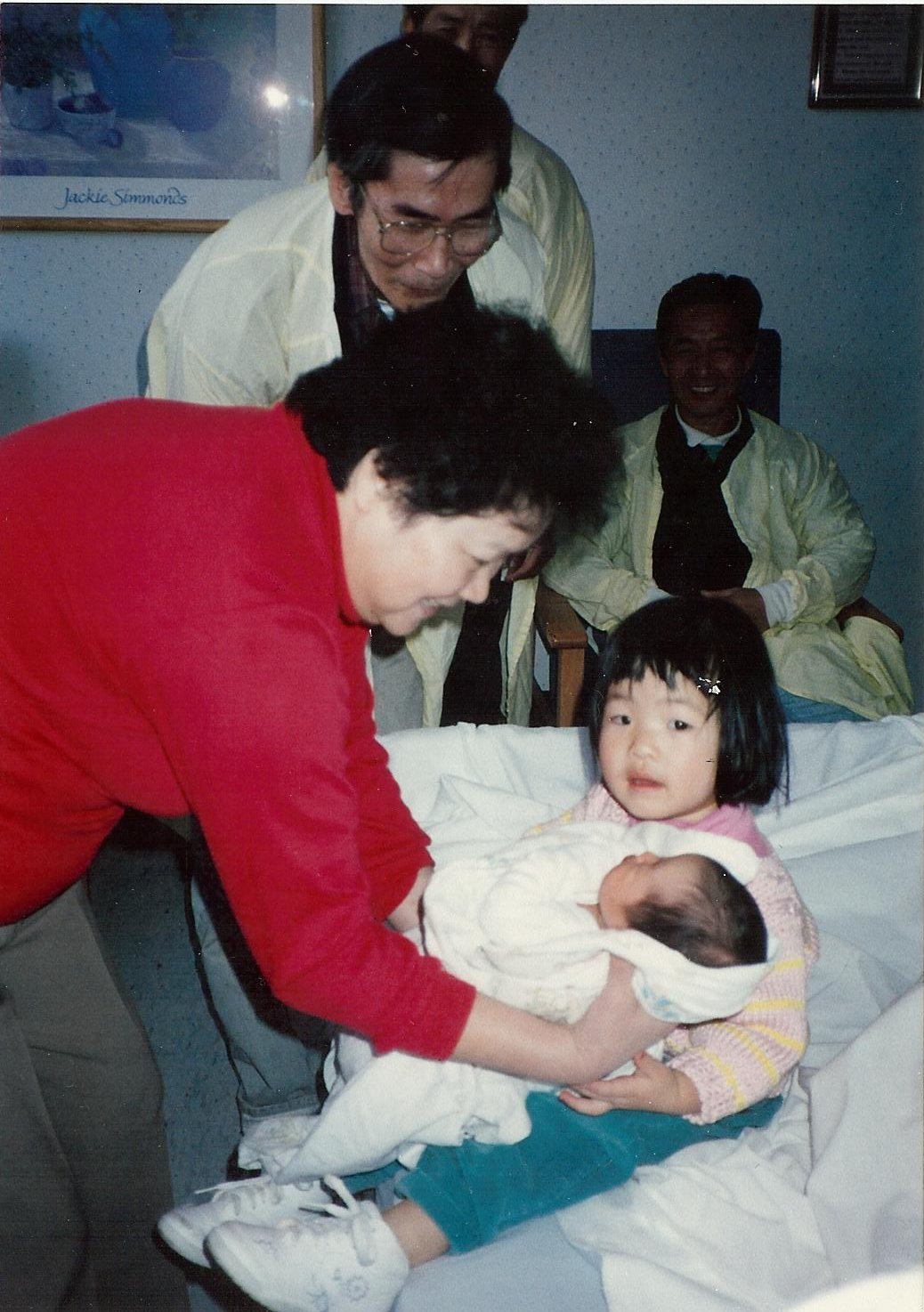
More reading/watching!
Chinese childbirth confinement has been much talked about. We discovered these articles while writing this post:
- NPR, “For Chinese Moms, Birth Means 30 Days In Pajamas”
- South China Morning Post, “Should you avoid bathing or leaving the house after childbirth, as Chinese tradition dictates?”
- The New York Times, “A Tradition for New Mothers in China, Now $27,000 a Month”
- KQED, “New Mom Turns to Ancient Chinese Recipes for Postpartum Recovery”
- Youtube, a Hong Kong mom vlogger, Taylor R, recently documented her Chinese confinement period after having her son this past year.
Where Did It Come From?
Some say the practice likely began as a way to protect mothers from hard labor in the largely agrarian Chinese society of the past. Others say it’s connected to women being seen as bad luck or prone to bad luck after childbirth. (We can discuss how problematic that is at another time!)
That said, many views on the practice today are primarily concerned with the health and well-being of the parent. As times change, Chinese confinement practices aren’t being totally abandoned by younger generations, but rather adapted for modern life as mothers and parents navigate their health, tradition, and modern medicine.
How long does Chinese childbirth confinement last?
The confinement countdown starts right after giving birth, and ends when the baby is 30-days old (45 days for a c-section, which takes longer to heal from).
During this quiet time for rest and recovery, the parent stays home and spends time with the new baby to protect both parent and baby’s health.
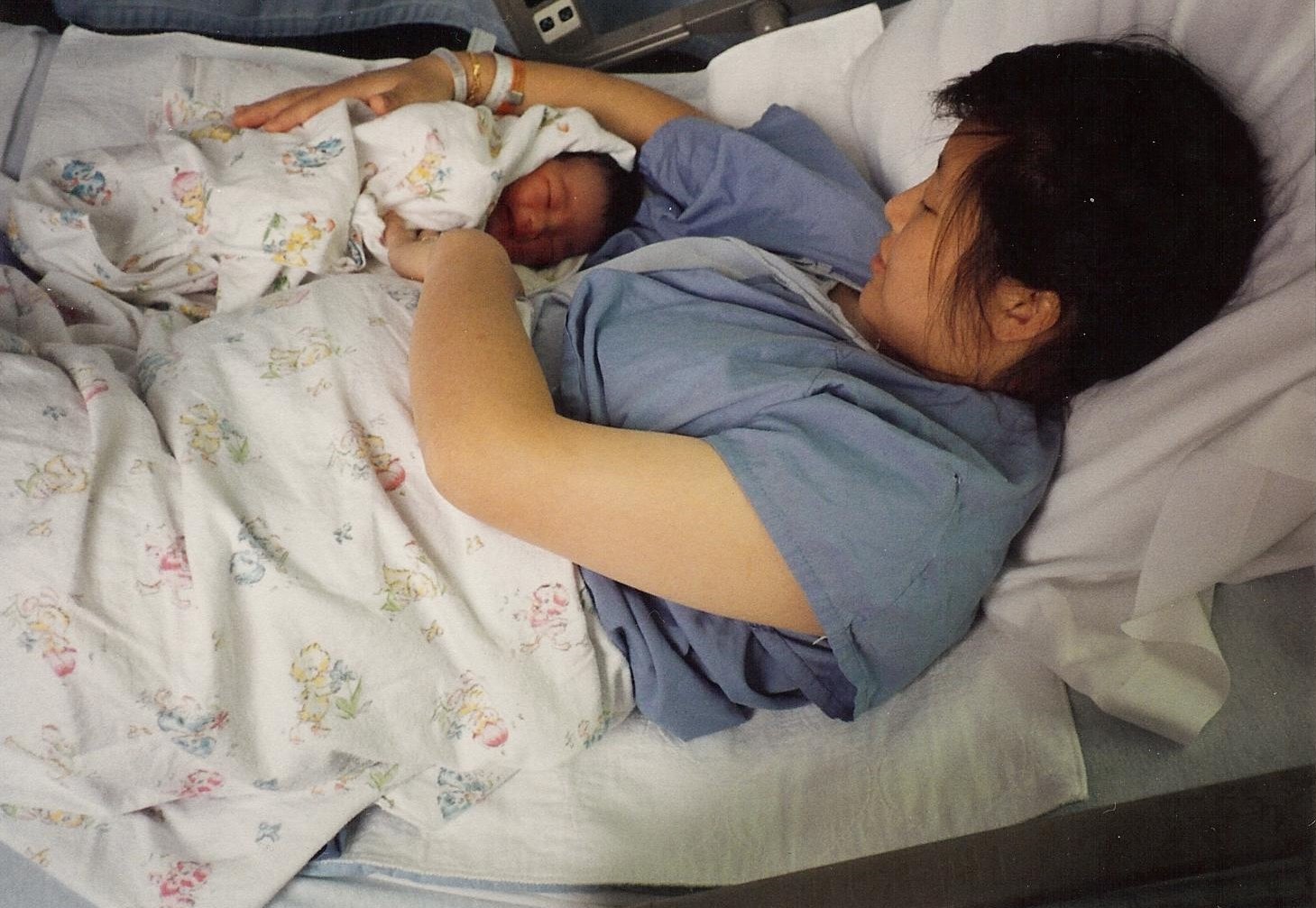
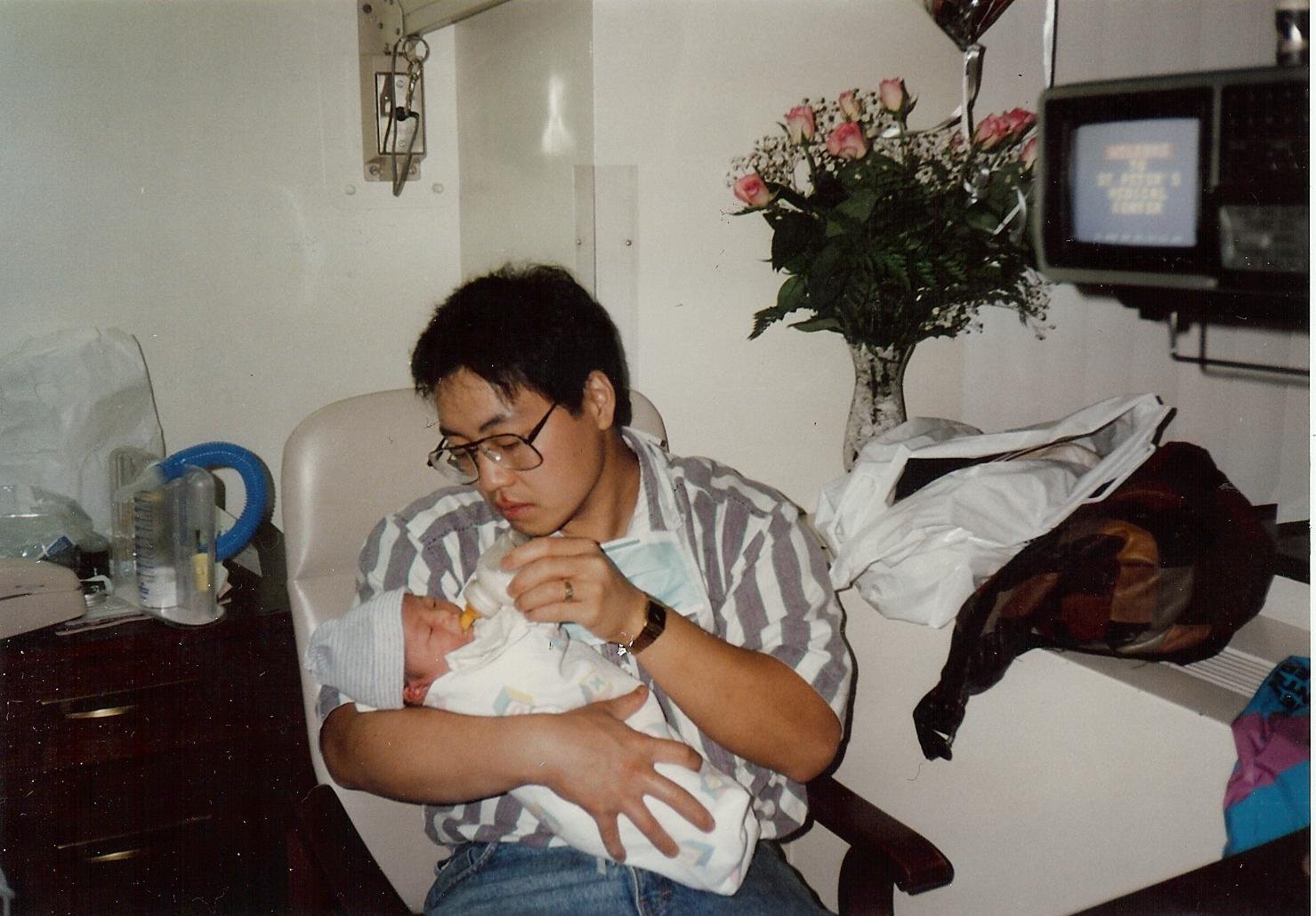
The Basics of Chinese Childbirth Confinement
The term “Chinese Confinement” sounds almost like the new mother is jailed or locked up somehow. The word “confinement” doesn’t have the most positive connotation. But it’s simply a time for rest and healing.
Rather than sending the new parents home to just care for their baby, this tradition dictates that the parent who gave birth should also be cared for and watched over, including watching their diet, body temperature, and amount of rest.
As a mother of two, I can say with absolute confidence that pregnancy is extremely taxing on the body, in case you thought otherwise. After months of fatigue, nausea, mood swings, back pain, and weight gain (the list goes on), giving birth is another tremendously draining task.
There is a Chinese saying that giving birth (生孩子) is like a journey to the gates of hell (鬼门关)! It‘s so important that we do what we can to properly recover afterwards.
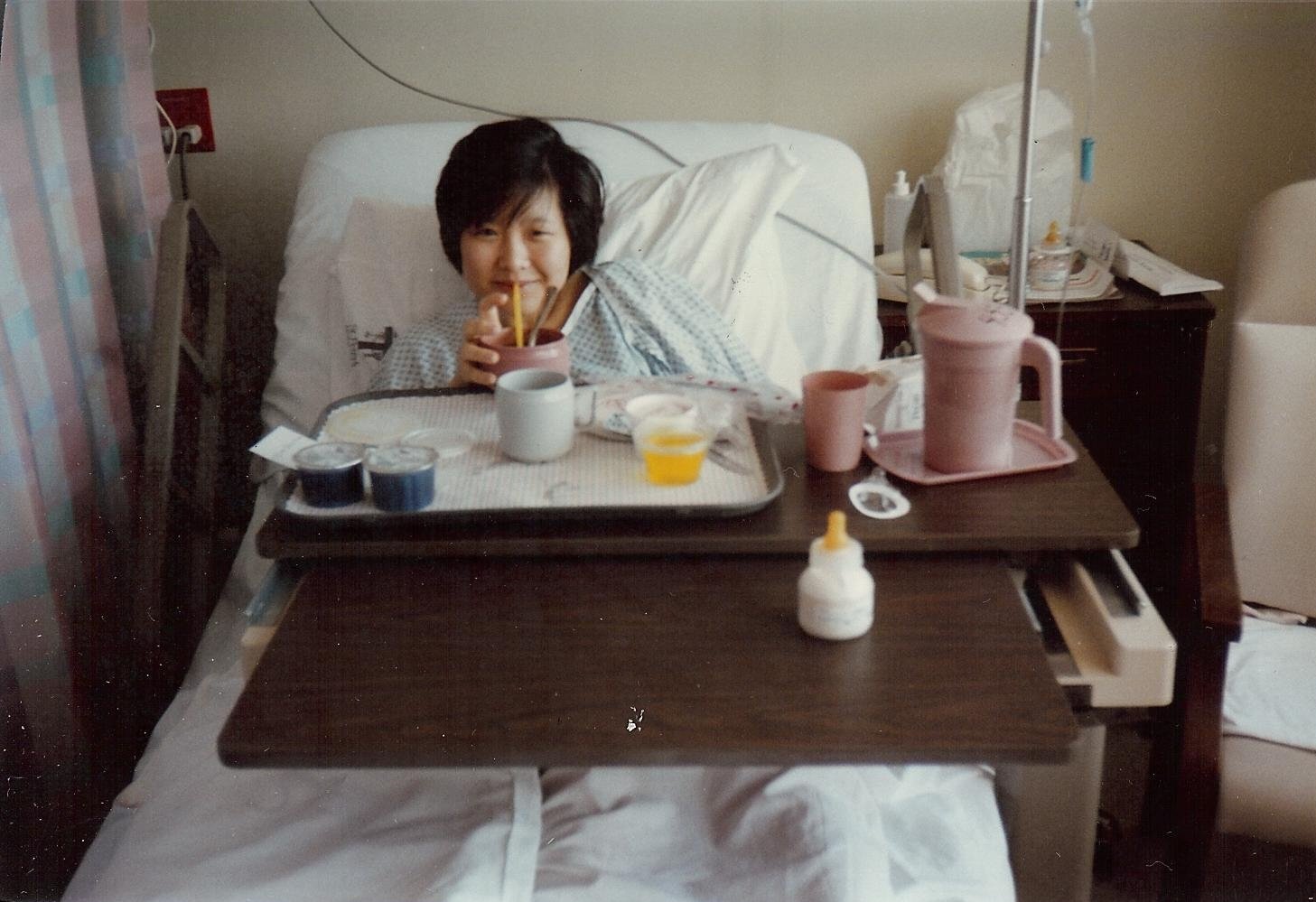
Note:
This confinement guide only addresses physical recovery. Some new mothers also deal with mental health issues like postpartum depression, which must be addressed separately!
A familiar image of childbirth confinement is a new mother in bed wearing a thick jacket with her head wrapped in a scarf while the baby sleeps peacefully next to her.
Since there are major hormonal changes after pregnancy and childbirth, your body is going through a special healing process, especially in the first week.
The Chinese believe that at this time, your body is more vulnerable than usual to the wind and cold. I don’t just mean extreme weather. That includes air blowing from fans and air conditioners in addition to the wind outside—and coming in contact with cold water.
During a traditional Chinese confinement, that’s just the start! There is strict guidance on foods you should eat to replenish your body, going out, opening windows, washing your hair, brushing your teeth, and showering, in addition to avoiding contact with the wind or cold.
What are the Chinese childbirth confinement rules?
Here are some of the guidelines I’ve heard over the years. This is age-old advice, passed down verbally through the generations.
If you are expecting, you do not have to follow it! Always talk to your doctor, and if you feel any illness and/or discomfort, address it with your doctor immediately.
Managing Your Environment
This aspect of confinement is perhaps the most obvious—in the strictest sense, you can’t go outside! In other words, the new mother and baby should avoid wind/cold/wet conditions, pathogens, and pollution.
While there is pretty strict guidance on staying warm and keeping away from the cold, it’s also important to cultivate a healthy environment.
Usually, a room temperature near 75°F is ideal, with a humidity around 55-60%. You may turn on the air conditioning to draw humidity out of the house on hot summer days. Just avoid direct exposure to A/C, fans, and cool breezes, and keep covered by wearing sleeves and long pants.
As you can imagine, confinement during the winter months is much easier than in the summer! Here are some modern guidelines that correspond to the traditional Chinese confinement rules:
- Staying home is the obvious aspect of the “confinement” period. This is to help new parents recover and to protect parent and baby from any unwanted illnesses during the baby’s first 30 days. Limit visitors during this time, or have visitors wear masks.
- Do open your windows for fresh air. Just move away from the window.
- Wear long sleeves, long pants, socks and a hat if possible to do so comfortably. The thickness of the clothing will vary based on the weather and season. Just know that you need to cover yourself up more than normal. No bare feet! Avoid tank tops or anything that leaves your shoulders uncovered.
- In the summer, do your best to avoid air conditioning. If it’s hot out, you can turn on the A/C, but stay out of the direct path of any cold air, and consider covering yourself with a thin blanket.
Hygiene
Perhaps some of the most-talked-about confinement customs are about hygiene. You may have heard that in confinement, the new mother is not allowed to shower, bathe, brush teeth, or do any hair washing!
That does sound extreme, but the original context of these practices was in ancient times, when there was no heating, indoor plumbing, hair dryers, a constant supply of clean, heated running water, and other modern conveniences we enjoy today.
Here are some modern adaptations to the traditional rules:
- When showering, turn up the heat in the bathroom, and/or warm up the bathroom using a heater before going in there, particularly during the colder months. Just exercise caution with any electric heater, and perhaps remove it from the bathroom once it is nice and warm, before showering.
- Shower with water that’s warmer than your ideal water temperature, and try to limit shower time to no more than 10 minutes. Dry off quickly, dress warmly, and blow dry your hair right away, before stepping out of the heated bathroom.
- Space out each washing (perhaps for you, this means washing your hair every other day or every few days).
- If you feel weak and lack energy, delay the exertion of washing until you feel better.
- Avoid baths to avoid infection. Sitting in bath water is discouraged, particularly if you have healing wounds from a C-section or other lacerations. (This is in keeping with the recommendation of Western doctors!)
- When brushing your teeth, use a soft toothbrush and warm water, rather than cold or even room temperature water.
- Some recommend showering with hot water that’s been infused with warming ginger and other herbs!
Diet
We have a more detailed article about Chinese confinement foods and dietary guidelines, but the basic purpose of watching the new parent’s diet is to allow them to replenish their body, boost circulation, and stimulate milk production. For now, here are a few basic rules:
- Avoid raw, cold, or “cooling” foods like watermelon, cucumber, etc. You may be allowed to have some cooked fruits or fruits in tea form.
- Stay hydrated, but only drink warm or hot liquids, like tea, warm water, and broth/soup (avoid heavy cream-based soups). Do not drink cold or iced beverages!
- Eat foods high in protein, fiber, and vitamins and minerals, particularly iron.
- Avoid oily and fried foods, as well as spicy foods and foods with excess salt.
Other Activities
- Get plenty of rest, especially when you’re feeling weak or fatigued. Alternating getting up out of bed and laying down may help avoid any leg or back pain from too much of one or the other.
- Avoid too much strain on your eyes. That means avoiding looking at books, TVs, or smartphones for extended periods. Be sure to give your eyes a break. (This is common sense for anyone, anytime!)
- These days, hiring help during Chinese childbirth confinement is increasingly common. Some new parents hire a confinement nanny to help guide them through the process. Mothers and mother-in-laws may be willing to help around the house and prepare meals to help parents avoid exertion and housework. Of course not everyone has these luxuries. In short, get plenty of rest.
- When the baby is 30 days-old, and parents are out of confinement, it’s Chinese tradition to have a celebratory dinner to present your new baby to friends and family and to receive good wishes and blessings!
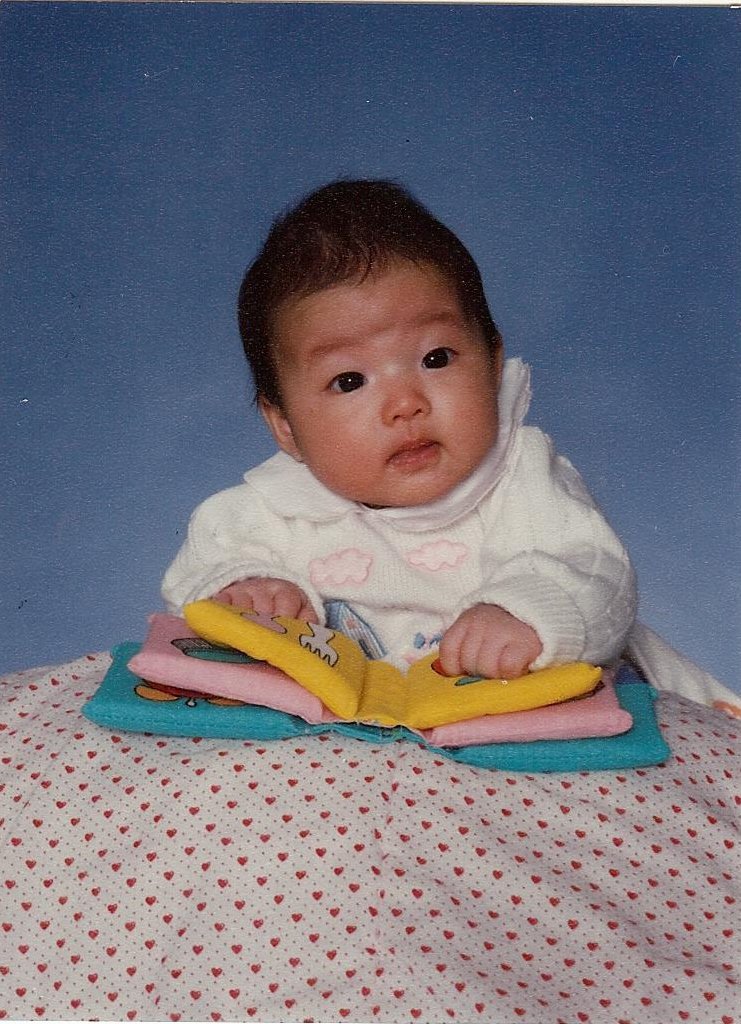
Chinese Confinement After Childbirth: My Experience
It’s a commonly shared belief that all illnesses from childbirth can only be amended during the next childbirth confinement. In other words, it’s important to do the confinement correctly!
I had a c-section with Sarah’s birth, and I was in a great deal of pain. I pretty much followed my mother-in-law’s instructions, figuring that I needed all the help I could get to recover.
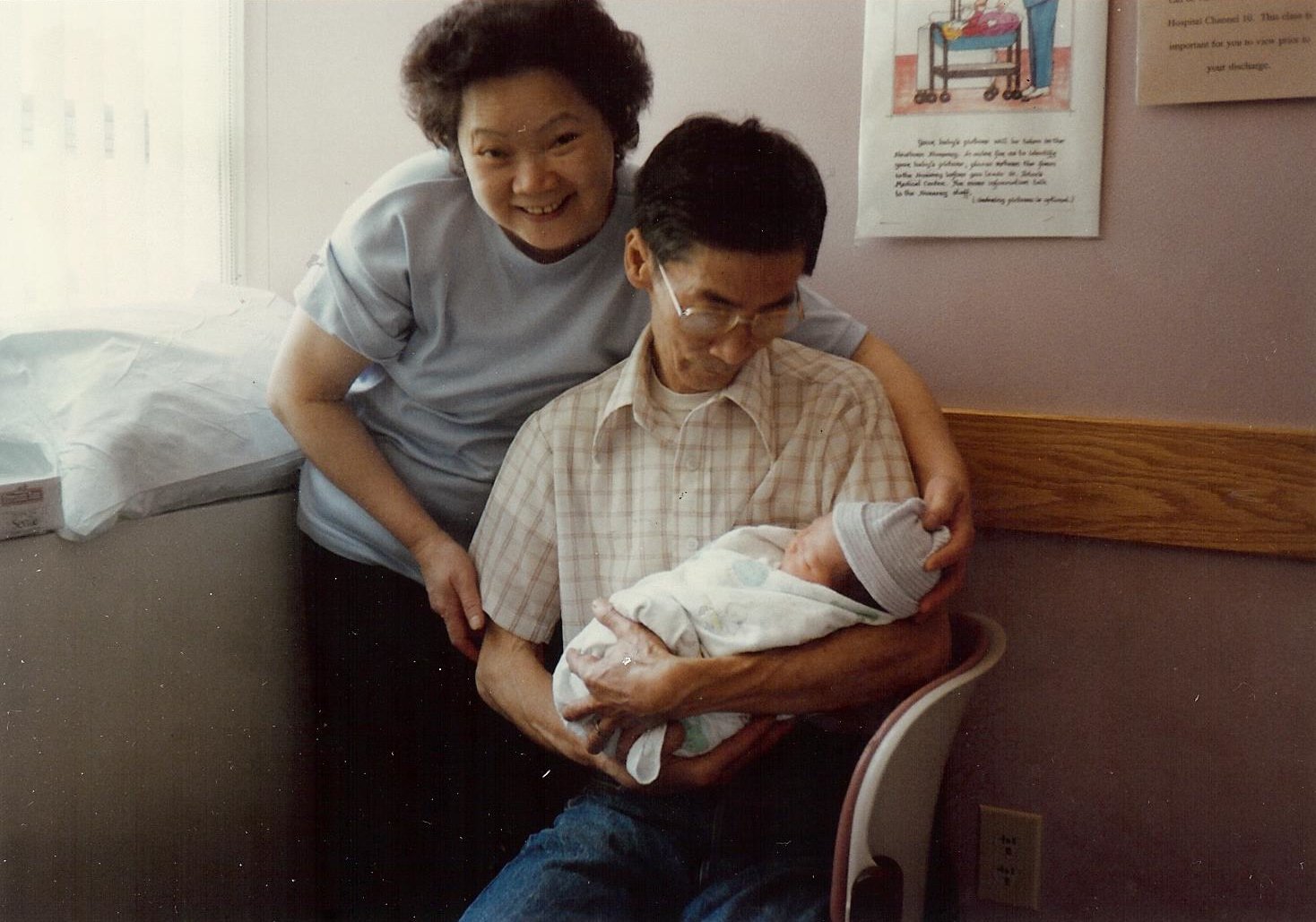
She cooked me a large clay pot of Cantonese pig knuckles with ginger and vinegar, a classic post-partum “food-as-medicine” dish, but my Shanghainese palate just couldn’t stomach it. Instead, I had a lot of chicken soups and fish soups to make up for it.
Kaitlin was an easy birth; I was so happy that I was able to eat right after birth, which wasn’t the case with Sarah. When the nurse checked on me and questioned me as to why I hadn’t yet showered on the second day after giving birth, my belief in the Chinese confinement tradition wavered…I took a shower in the hospital without telling anyone.
Now I get terrible headaches whenever it’s cold or windy out, and I must wear a hat to avoid it. I can take a couple of Advil to help with the pain, but the headaches come on every time I find myself in the cold air without a hat. Based on Traditional Chinese medicine and Chinese childbirth confinement guidelines, all these years later, I regret taking that shower!
That said, that was definitely the hardest guideline for me to abide by. Everything else is relatively easy, but the less frequent showers were tough. I went so far as to cut my hair short. This is a common practice among new mothers to cope with the limited hair washing.
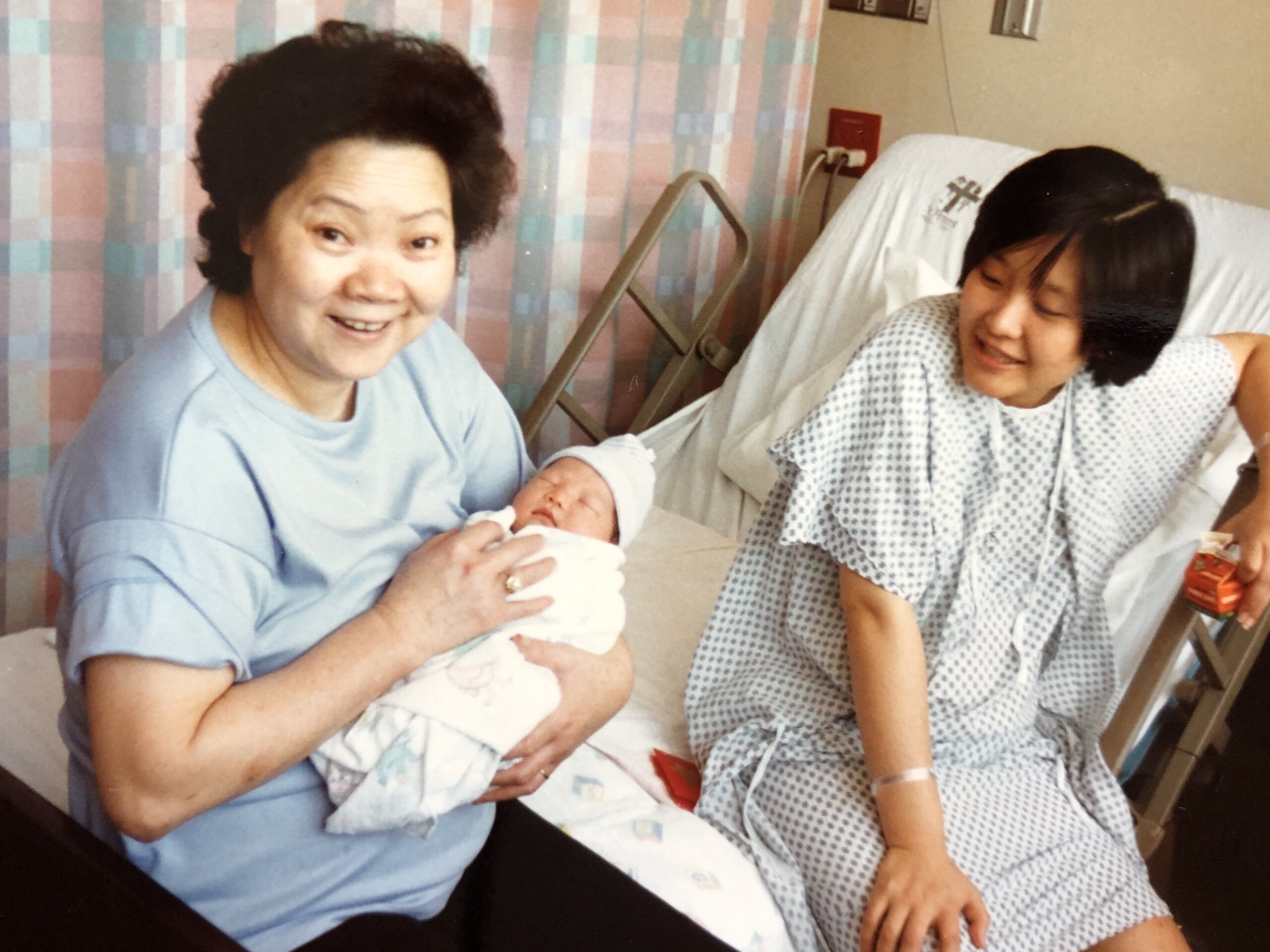
I hope you found this post interesting! I know many of you are still curious about traditional foods to eat during confinement. Read more about The Chinese Postpartum Diet here.
